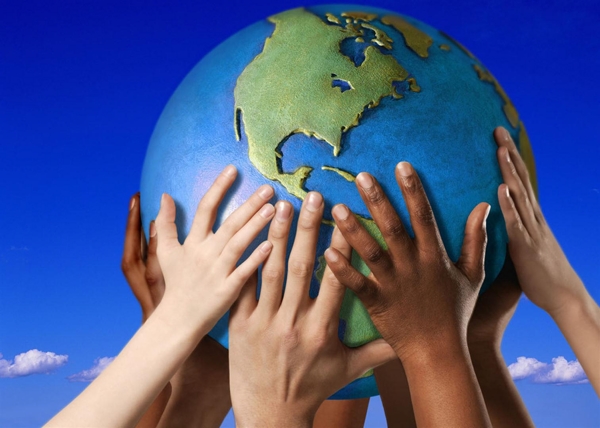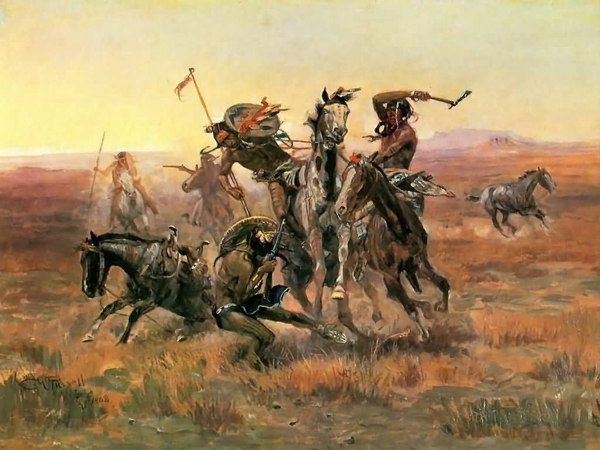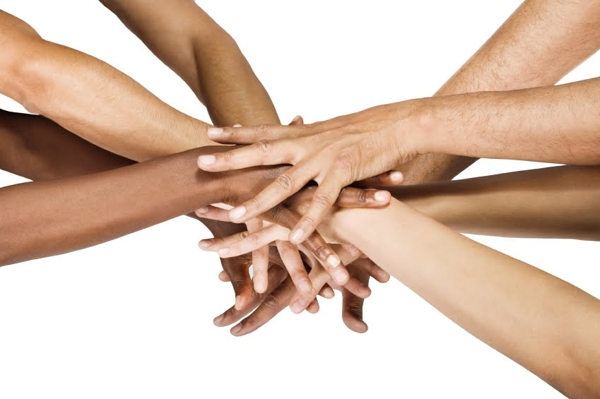|

In the West, we routinely look down upon cultures we consider “Tribal” in nature. We associate the term with people who are too narrowly focused within a limited circle of trust and are unable to interact and collaborate with people outside their core group. In America over the last ten years, we have been perplexed as to how to deal with the culture of people we are in armed conflict with in various parts of the world, who are strongly tribal in their mindset. Ironically, as that has been playing out, we have escalated and amplified our own home-grown American Tribalism to record heights. At its most basic level, American Tribalism manifests itself in many different ways on a daily basis:
- The 1% vs. the 99%
- Blue States vs. Red States
- Our “Partners and Allies” and Everyone Else
- Climate Change Believers, and Climate Change Deniers
- Gun Control Supporters, and Anti Gun Control Advocates
- Our Daily Obsession with Winners and Losers in All Most Everything We Do
The distinguished humanist, Dr. Pat Duffy Hutcheon has written eloquently on tribalism and defined it this way:
Tribalism is simply the deeply ingrained human habit of identifying oneself in terms of the group; of viewing one’s own in-group as somehow special and superior to others; and of discouraging social intercourse (or any other type of intercourse) with members of the out-group . In many ways we are all prone to tribalism. It is deeply rooted in our evolutionary history and biological heritage. It stems from the kin selection that evolved in response to the ever-present dangers to self and family in primitive times: a process resulting in the encouragement of adult members of the clan to sacrifice themselves, if necessary, for the survival of their own offspring and those of their siblings. Because of the way evolution works, this pattern of behavior had the consequence of preserving the genes of those individuals who behaved in a tribalistic way, while eliminating the others… It is easy to see how, in the early stages of the development of the human species, these essentially tribal drives served to sustain and protect the group. Groups that did not respond to outsiders in this way failed to survive to reproduce their kind. This is why tribal feelings make us feel good in the deepest recesses of our being.
In 2014 in much of the developed world, we do not need to fear from the physical attack of opposing tribes. Yet, we continue to behave as if our very lives are in danger during the the normal course of the day – at work, while watching a sporting event, while driving, and certainly in our political choices.

At its core, this Tribalism stems from our belief in the separateness of ourselves from others. If those others think, act, and look like us, then the distance in that separation narrows. If not, then we revert to our primitive survival instinct. The Other is not Us, we must prosper, and the Other must not. Many of the world’s spiritual traditions – Christianity, Hinduism, Buddhism, Taoism, Sufism, and more - for the last five thousand years have been telling us how the separation between people is an illusion, that we are in fact the same, one, and interconnected. Quantum Physics is also showing us at the subatomic level, everything and everyone is one big, connected energy field. We do not exist in isolation from each other, we are highly interconnected. This implies that what we do to others is essentially doing it to ourselves. Based on this logic, societies with deep regard for social cohesion and the success, safety, and dignity of all individuals would achieve more peace and happiness than those that do not appreciate those values.
We are connected to the Earth as well – all aspects of our material world are part of the same energy field. Actions we take to enhance the world’s energy field result in good things, what we do to lower the energy field, causes disastrous effects. We therefore have a responsibility to each other and the planet we live on. When we don’t respect the earth, that low dose energy we deposit into the environment has consequences.
If we believed all this to be true, how would our individual behavior look differently from what we are doing now? For one, winning and losing would lose its importance. Certainly, we would want to do well at meaningful goals we set out to accomplish, but winning at some one else’s expense (or the Earth) would show itself to be counterproductive. Why beat ourselves? Instead, we would seek more to collaborate and co-create.

Our definition of who’s on our team would also dramatically expand. For some people, their team is limited to their actual blood relations, their direct family, or the particular temporary team they are part of (job, sports, etc). For others it may be people affiliated with their religious faith, or their political party. Going a bit larger, some may expand their circle of inclusion all the way up to their country and then from there, people of the same race. But to truly move beyond tribalism, we would realize the circle envelopes the whole human race. Everyone is on the same team. And what we do that affects others on the planet, would be the same as affecting ourselves.
With this mindset, could we look at things such as climate change, energy policy, and efforts to combat poverty in the same way? Unfortunately, at this moment, we have too many people on the planet operating on a limited team mindset – what’s good for their particular team, regardless of its effects on others is their primary concern. The crisis that we have now entered is that most of the really big issues we face require cooperation across nations, and within sharply divided groups within nations (climate change, persistent poverty, financial system regulation, managing the effects of rapid technological progress, shortage of global energy and food supplies, clean water issues, etc). It is very difficult to live as an Island in the 21st century. The small tribe mentality won’t be enough to conquer these challenges. Only the realization that we are all One, One Team, One Unified Whole, can get us to where we need to go.
But what can each of us do in our daily lives?
- Operate in the world, as if everyone we meet is a potential friend or co-creator.
- Search for the goodness inherent in everyone and embrace the mutual commonality. It’s there. The external form (how someone looks, their ethnicity, where they came from, etc) is a mere temporary covering of the soul and someone’s beliefs are transitory states of their mind and their ego.
- Move from win-lose to win-win. Celebrate the effort and accomplishments of others just as you do your own. The more we embrace the success of others, the more we attract success into our own lives.
- Support organizations, businesses, and people that promote inclusion and avoid those that create and feed divisiveness into our society.
- Help elevate societal consciousness and especially that of our children. As an example, in the 21st century, do we need to continue playing and supporting sports that are based on physical violence?
- Realize that the Earth is a living organism (see the interesting article referenced below on the emerging field of plant neurobiology). It is not a static rock. What actions we take against the planet have physical repercussions. Civilizations who were close to nature intimately understood this fact. Align your purchasing, consumption, and voting decisions accordingly.
Resources for further exploration:
By Jay Kshatri, Think Smarter World
The post 2014: Moving Beyond Tribalism appeared first on Think Smarter World.
|

